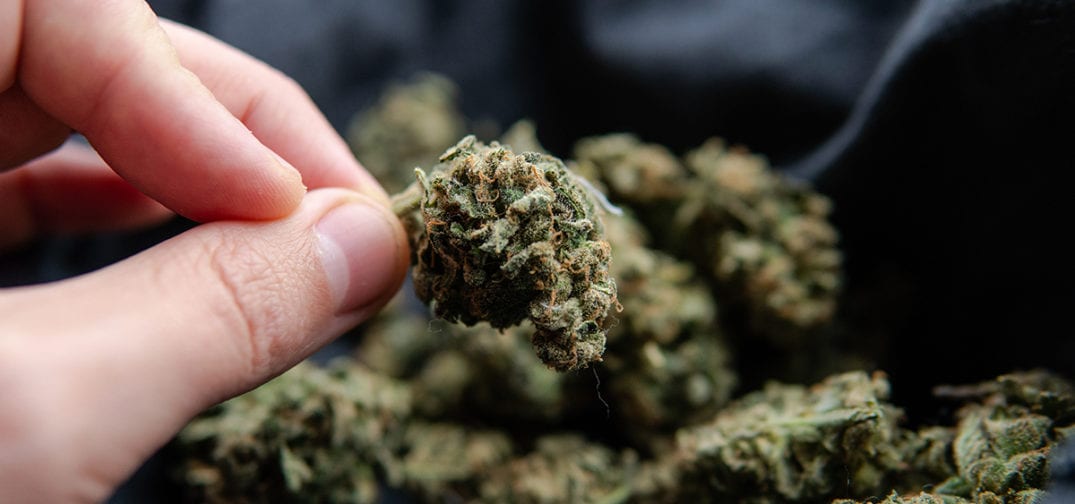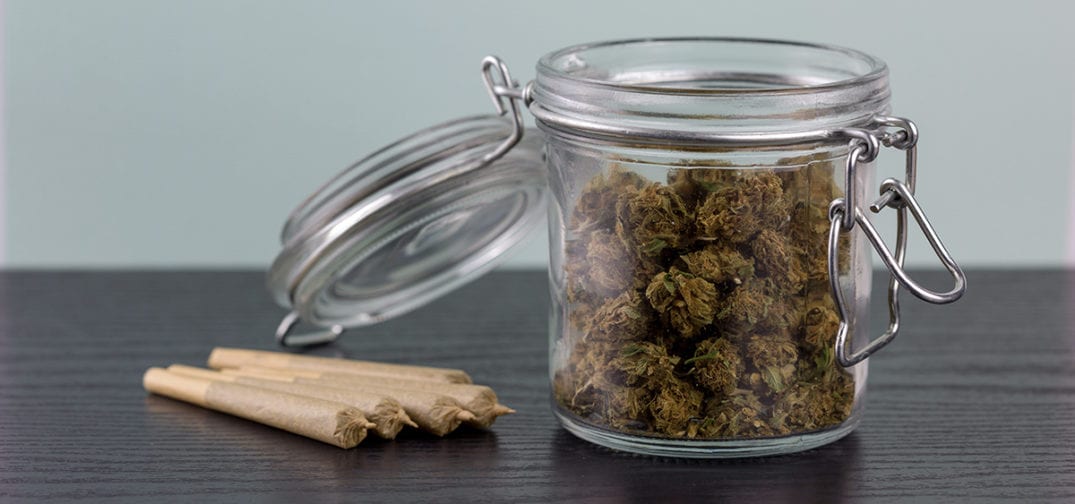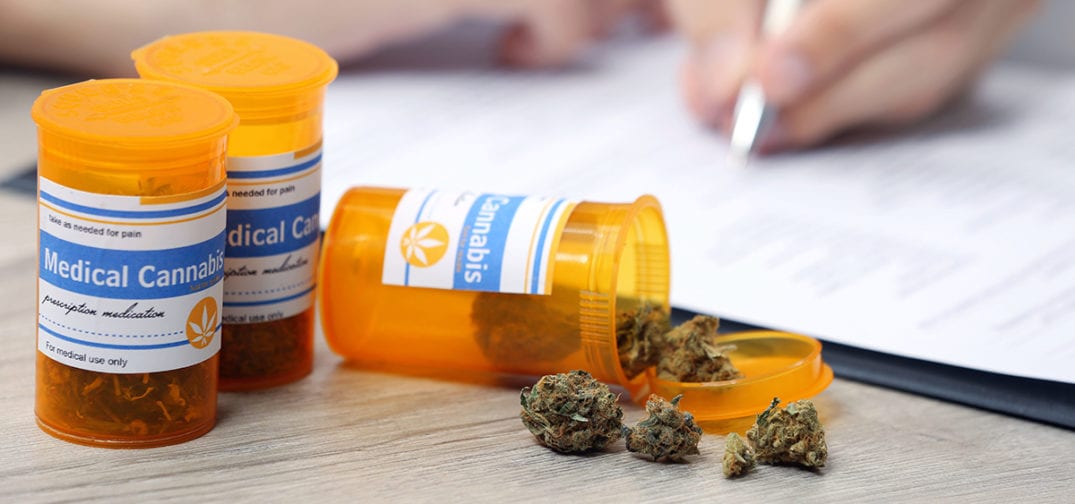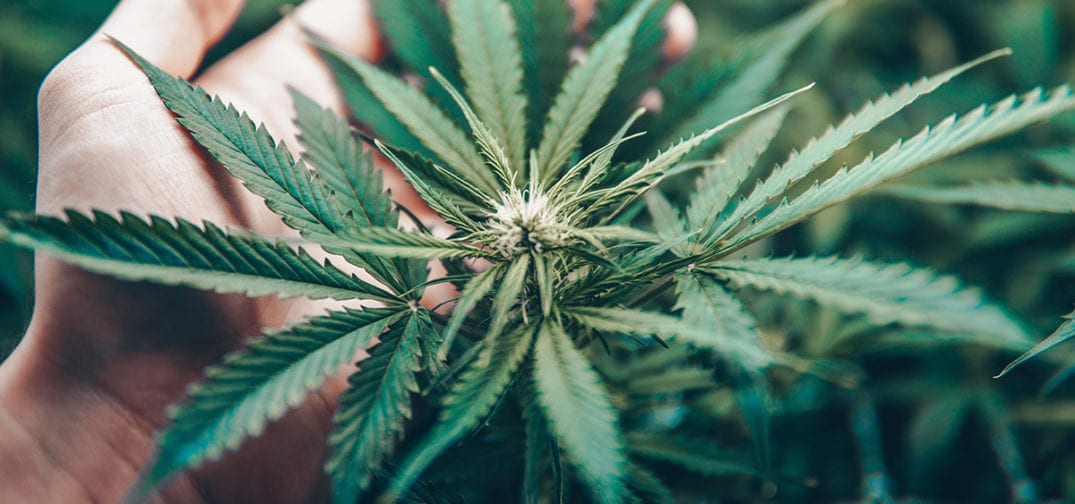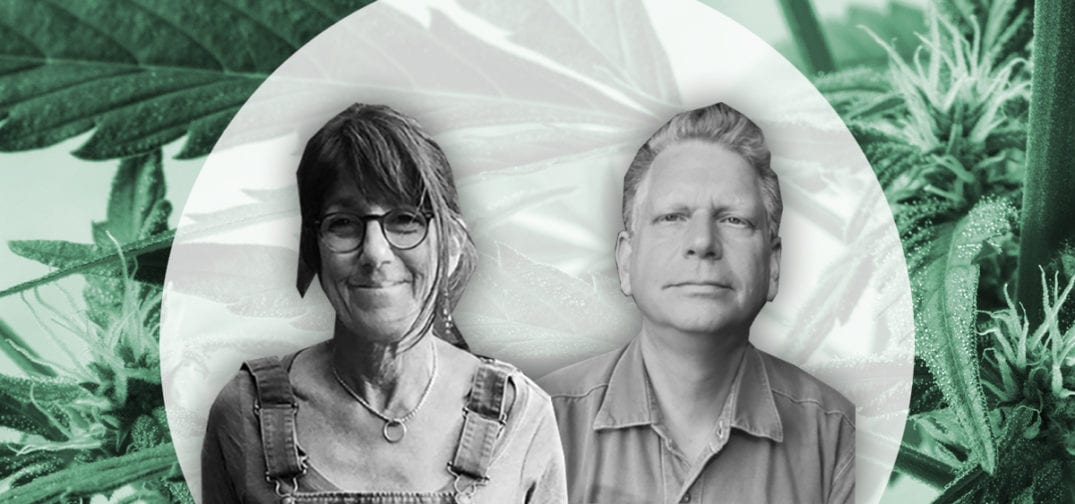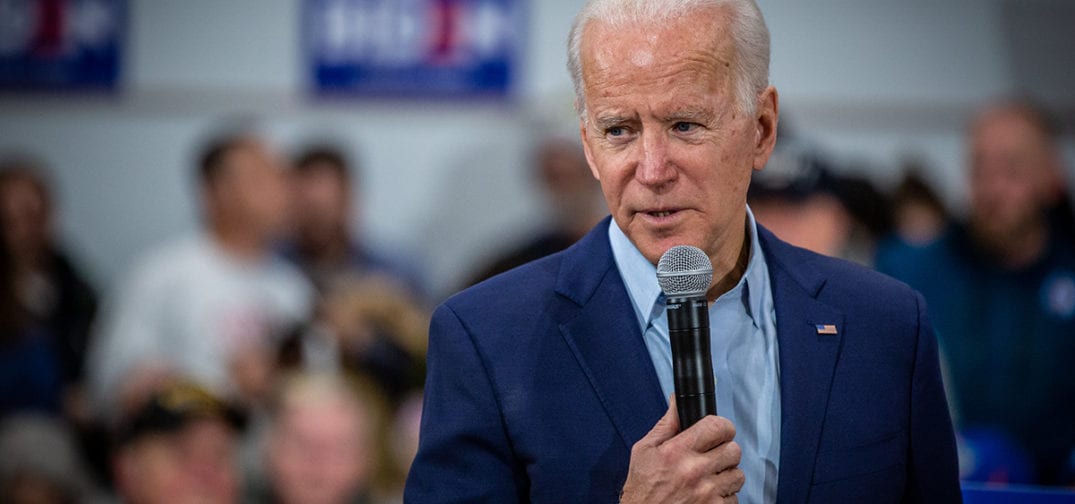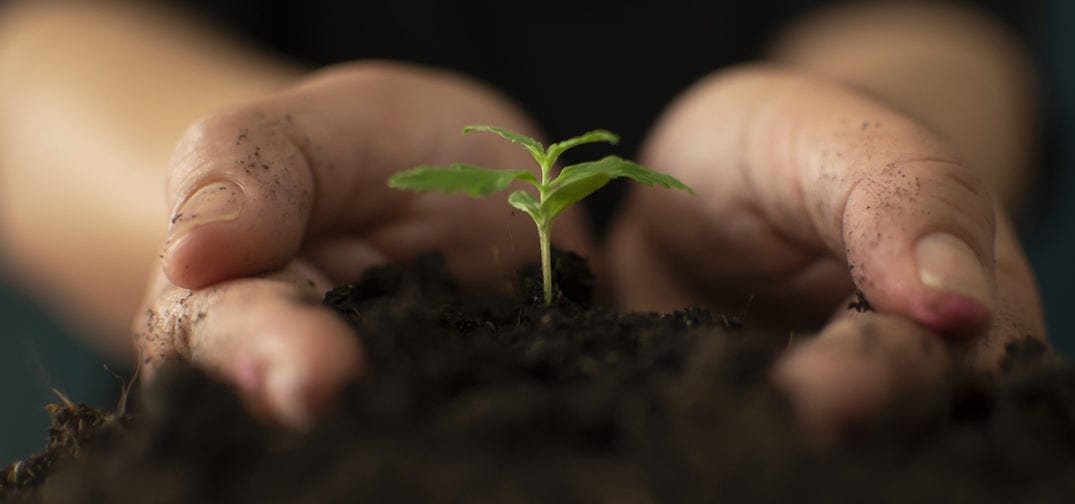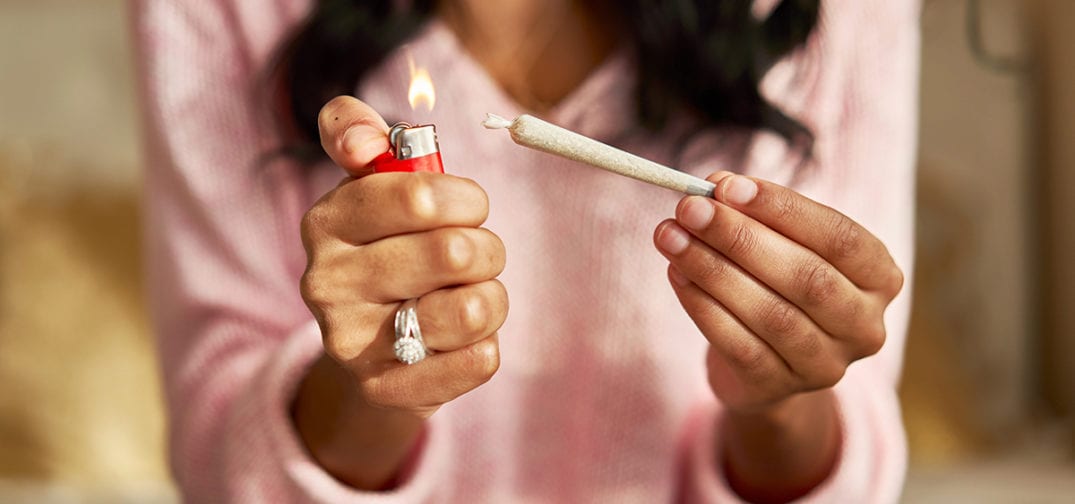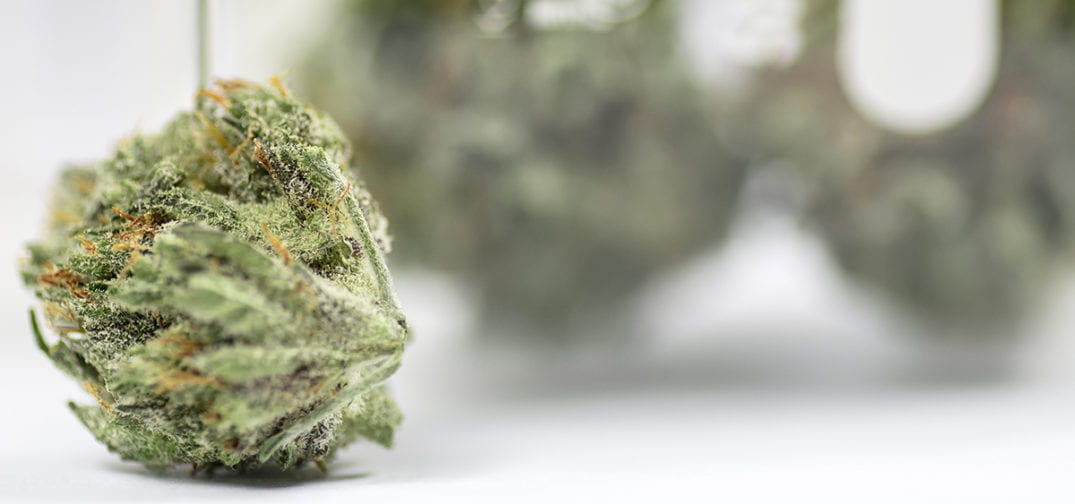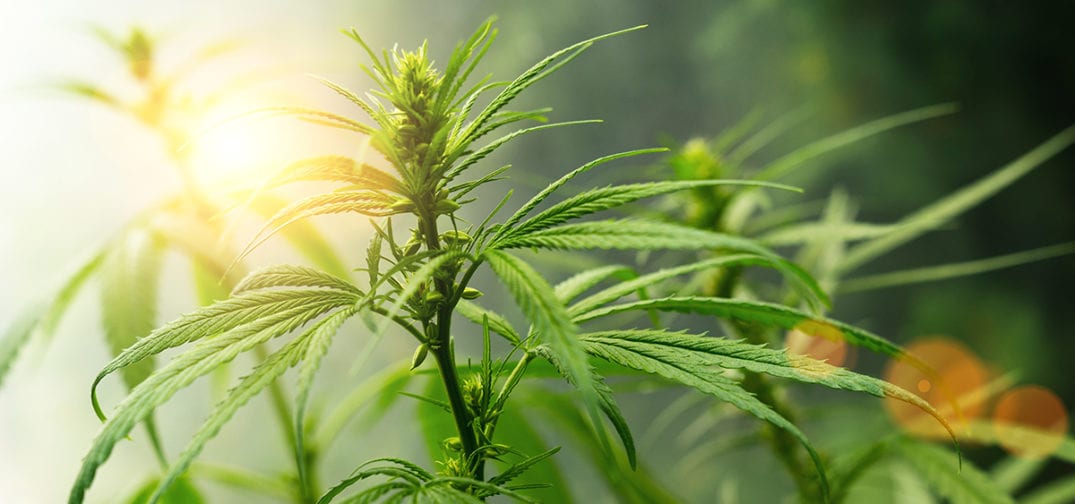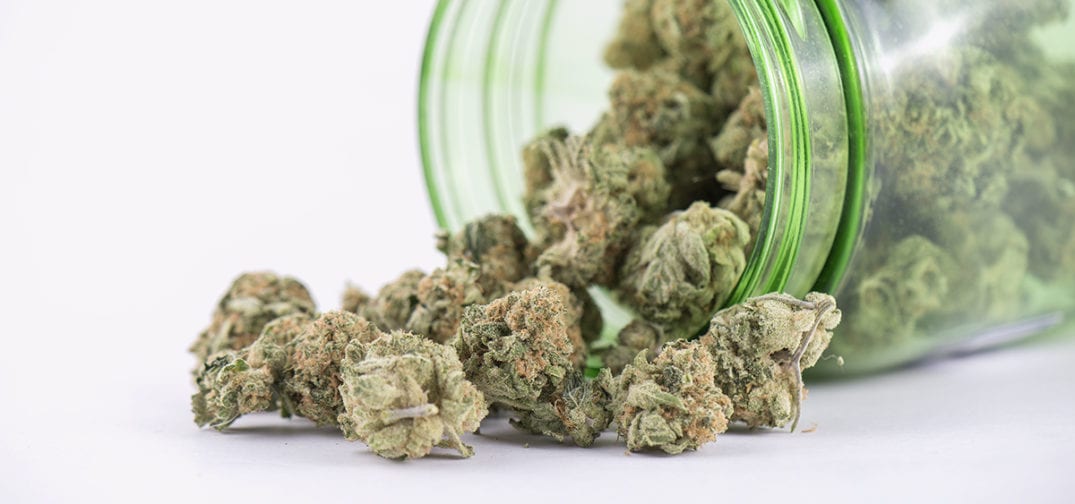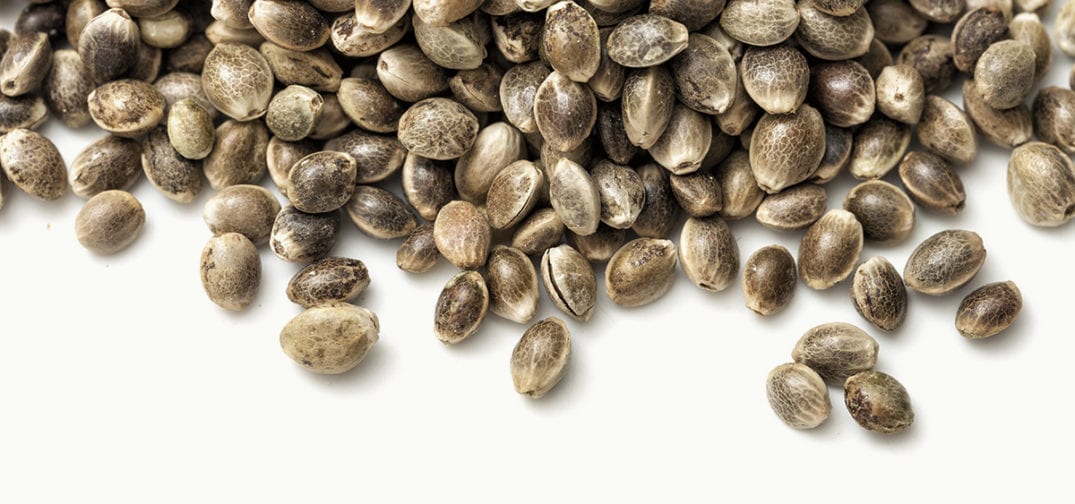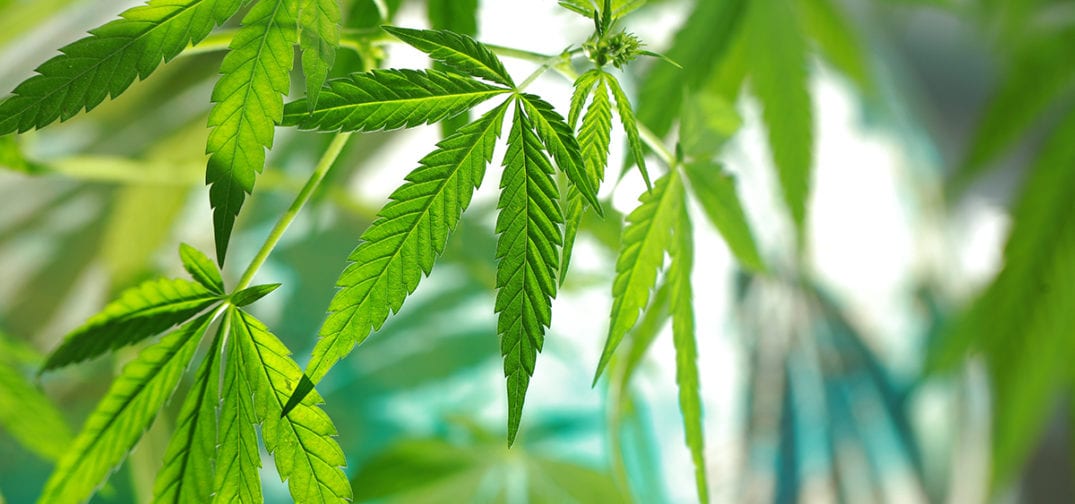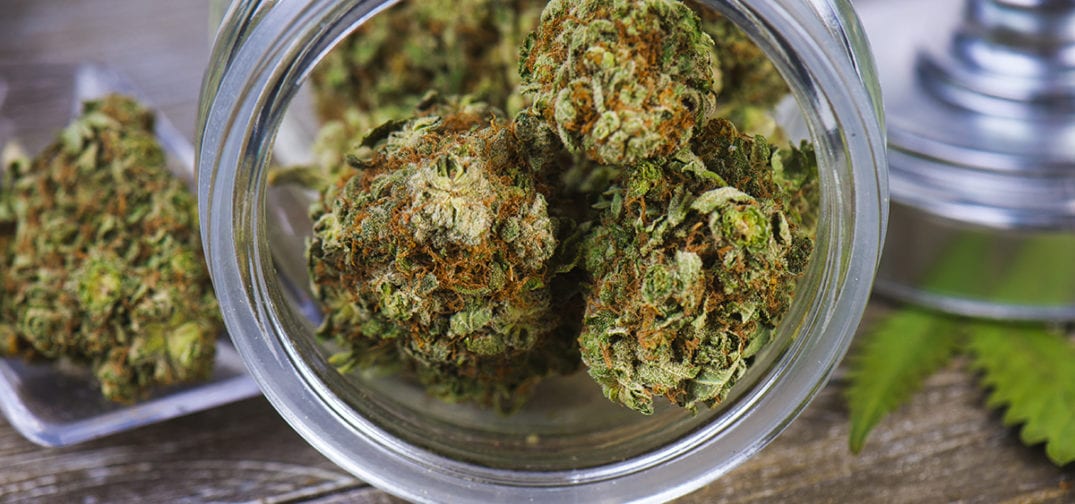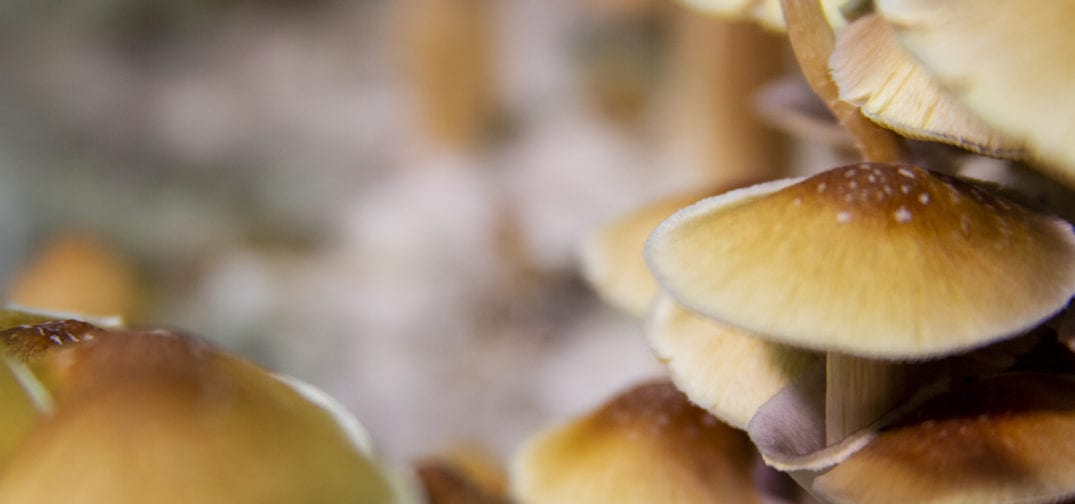Andi Novick is a New York lawyer/activist combo and Brian Farmer is co-founder of the Cannabis Conservancy — together, they have partnered to help lead New York Small Farma in its push for regenerative and sustainable cannabis farming in the state of New York. For the latest Ganjapreneur.com podcast, the two joined our host TG Branfalt to discuss New York’s legalization prospects, what they hope the Empire State’s cannabis industry will look like, why it’s important to specifically write opportunities for small farmers and craft cannabis businesses into state legislation, and more!
Tune in to this week’s podcast episode via the media player below, or scroll down to read along with a full transcript of the interview.
Editor’s note: This interview was recorded prior to the COVID-19 pandemic and some of the episode’s key points of discussion — such as New York’s 2020 legalization prospects — have unfortunately shifted since then.
Listen to the podcast:
Read the transcript:
Commercial: This episode of the Ganjapreneur Podcast is made possible by Dama Financial. Get access to a secure, transparent banking solution with Dama Financial. Secure your cash, make and receive electronic payments, and stop worrying that your account will be shut down for being a cannabis business. Protect your money with an FDIC insured bank account, and discover Dama’s suite of sustainable, compliant financial products, including merchant processing. Schedule a free consultation at damafinancial.com today, or call 877-401-3262. Dama Financial is an agent of its financial institutions and money transmitters.
TG Branfalt: Hey there. I’m your host, TG Branfalt, and thank you for listening to the Ganjapreneur.com Podcast where we try to bring you actionable information and normalize cannabis through the stories of ganjapreneurs, activists, and industry stakeholders.
Today, we’re going to be talking about my home state of New York with Brian Farmer and Andi Novick. They are board members for New York Small Farma, an industry community working to ensure social and environmental justice for cannabis growers and supporters in New York State. Andi is also an attorney and farmer, while Brian is also the co-founder of the Cannabis Conservancy, and he’s making his second appearance on the podcast. How you guys doing this morning?
Andi Novick: Great. Thanks for having us on.
Brian Farmer: Thanks, Tim.
TG Branfalt: Absolutely a pleasure. Before we sort of get into what your organization does and we talk about New York, why don’t you give us sort of a brief background on yourselves? How did you end up in the space?
Andi Novick: Brian, you want to start?
Brian Farmer: Well, sure. I’ll do a quick one. I’ve been involved in organic agriculture for three decades. About four and a half years ago, co-founded the Cannabis Conservancy, which is a sustainability certification that has now moved international. We’ve been working on that on the ground very hard for four years. So, that’s how I came into the, quote, “cannabis space,” the industry as such.
So, we’ve been really working around sustainability issues in this country, in terms of our certification, and this seemed to really link up with what Andi got started here. And I’m very interested, because I live in New York as well, about how this is all going to play out. So, we want to make it as sustainable as possible.
Andi Novick: Okay. My turn. So, this is Andi, hi. I first started … I’ve always been comfortable with cannabis, but I first really looked into it about seven, eight years ago when a really good friend got cancer, and I was looking for alternatives, and at that time, I thought that cannabis was good for nausea and for stimulating appetite, and found through my research that, “Whoa! It could actually kill cancer cells in certain situations and leave the good cells.” And so, I started paying attention, and the medicinal benefits were extraordinary.
And that was sort of it until about a year and a half, almost two years, ago when the plant actually spoke to me during my meditation and she said, “Look, someone’s got to do something. I don’t have a voice. You have a voice. But they’re about to lock me …” Well, “Increase the locking me in the windowless warehouses, and I’m never going to see the light of day, and I’m going to be sprayed with all sorts of growth hormones and toxic chemicals. And someone needs to say something.”
So, I took it on. I don’t have a business. I’m an activist, but I’m an attorney, and this is an actual trajectory for me because I’m a farmer. So, I suppose the plant is my client. And I founded this organization about a year and a half ago, and realized that the legislature was already, last year … It was the third year they were taking up the issue of ending prohibition, and I was in there saying, “Wait, wait, wait! You don’t even mention that it’s a plant in any of the statutory language. It’s a crop. It’s a plant. Farmers should be growing it.” And they were like, “What do you mean? It’s a drug.” And so, that took last year in trying to get over on them.
And this year, I have to say Brian and I have been up to Albany, and we’re all going back again this week and next week. We’re really busy. And people aren’t looking at me with the same three heads as last year just for mentioning it’s a plant as opposed to a drug.
TG Branfalt: Well, and I want to mention that, last year, just for the listeners who don’t know, New York did vote on legislation and basically it ended up being squashed in the Senate by largely downstate Democrats, just so we are speaking the same language here.
So, tell me, what does your organization do and why is an organization with your mission important as New York eyes legalization this coming session?
Andi Novick: So, our organization is really important, and sometimes we sit around, a small group of us, thinking about how in this great state of New York are we the only ones working on this? But there it is. What’s really important is we’re no longer talking about, “Is cannabis going to get legalized? When’s it going to get legalized?” It’s going to happen, whether it happens now, which it looks like it will, or a year from now, isn’t so much the issue for us as how it’s going to get grown.
It’s true that we want to end prohibition first and foremost to end the racial discrimination and the way in which prohibition has been enforced. And there’s a wonderful coalition in New York that’s doing that work, which freed us up to let go of that issue and just focus on the issues we focus on because nobody else is, and that is the planet, the environment, the plant, the soil, how the plant is grown.
We advocate that, in exchange for this license, the state require that the plant be, as much as possible, or as much as we can get out of it, grown outdoors, including in greenhouses, but using the sun as energy, and grown regeneratively, and grown without any synthetic chemicals, any pesticides. And that the greatest attention be paid to craft farming.
So, we propose that 50% of the demand in New York, which is huge, be supplied by small farmers outside, and that the small business industry, whether it’s farming, or whether it’s creating product, whatever, we want to see this $3 billion that New Yorkers are willing to shell out of their pockets every single year for cannabis, we want it recirculated in New York State by way of lots and lots of small farms and small businesses throughout the state. We do not want to see those $3 billion being dissipated in the pockets of a few large cannabis industries while our legislators fight over where the 300 million is going to go. That’s the tax revenue off the projected 3 billion. We want to keep some of that home, and we want the plant grown consciously with respect for the planet.
And I just want to add, it’s particularly important in this industry … I would be saying this anyway because all plants should be grown regeneratively. We’ve seen that industrial agriculture has … What the damage that it’s done to this planet. But particularly this industry because people think that cannabis has to be grown indoors. Cannabis doesn’t have to be grown indoors anymore than tomatoes have to be grown indoors, but because people think that, that’s where their mindset is. And the indoor cannabis cultivation industry is one of the most energy-intense industries in the United States. And therefore, it uses a huge amount of fossil-fueled electricity, but it’s therefore putting out tremendous amounts of greenhouse gases.
So, if New York welcomes this new industrial cannabis industry, it’s going to totally nullify any of its goals for reducing greenhouse gas emissions. So, it’s particularly important in this situation because of what the state’s about to invite into New York.
TG Branfalt: Well, and in your conversations with lawmakers, how have they … Have they been receptive to such a plan, say 50%? Because as we know, the current medical makeup is all corporations. And in other states, these corporations generally get the first crack, these medical operators get the first crack at these licenses. So, how is your proposal been received in Albany?
Andi Novick: Well, it’s true that what they call here “Medical marijuana,” got in first, and it’s true that their model was one of vertical integration, and that gives them all sorts of advantages, but it’s also true that the legislature seems to have recognized that that’s not a good way to go about setting up the industry. So, going forward, they’re going to try to restrict vertical integration. So, what happens with medical is going to happen with medical. You know? They’ve got a lot of money invested in this, and they’re not letting go of their domain.
But what the new law is focusing on is who is going to be producing the so-called “idle use”, the non-medicinal. Although, frankly, the medicinal/non-medicinal is just a fiction. It’s not true. It’s the same plant. But nonetheless, they’re going to be focusing on that aspect. And what we have been saying is you’re regulating this. You’re not even really legalizing it. It’s not like once prohibition ends, everybody can start growing.
TG Branfalt: Correct.
Andi Novick: It’s all being regulated for tax purposes.
TG Branfalt: Correct, thank you.
Andi Novick: So, what we said is, “Hey, you have to limit the number of licenses you give to large canna. We get that you’re dying to suddenly supply all this demand in New York overnight, but limit the licenses so they don’t get too big. And then have the other 50% of licenses go to small farmers and craft growers, and have absolutely no limit on the licenses that you give out to those people because we’re trying to encourage small business opportunities in this new industry that state is giving birth to.”
And since these craft farmers will, by definition, and by virtue of their license only be able to grow a smaller amount, there’s no risk that they’re going to take over and consolidate the wealth. So, we want to have as many people in New York growing regenerative, organic … And I don’t mean organic, necessarily, with the having to pay for what you need to, but just without pesticides, and grown in a conscientious way, the way … Brian knows how to make sure people grow this.
And that’s what we’re asking the state to do. In terms of their reception, the only way it seems that they understand what I’m talking about is if I mention the craft industry, and then people’s light … you know, it’s like you can see a light bulb go off, and they’re like, “Oh, right!”
And so, one of the things I’ve done, I drafted proposed legislation for the new bill. And I’ve called, what’s essentially the equivalent of a craft brewery … We have it in New York, we have craft breweries, we have craft wineries, we have meaderies. What I figured out is if you add E-R-Y to the end of the word, you get a craft business. So I called them cannabiseries.
And I’ve said, “Okay. How about a cannabisery?” Which would essentially be a micro-license, but it would be for a farm. And when I talk about it as a craft industry, they’re more open to it. But you know, the governor’s language is coming out tomorrow. I don’t think we’re in there quite yet, but we have 90 days to get in there.
TG Branfalt: So, as we move towards legalization, as you said, we’re expecting Governor Cuomo to give us information … already exist. But in other states, you know, especially … I mean, California does include energy-efficiency requirements, but most states, they don’t include these regulations on energy consumption, especially the early adopting states. Why do you think that most state cannabis legislation doesn’t include these regulations on energy consumption, knowing very well that it’s a very high-energy industry when you have to do it indoors?
Andi Novick: I think it goes back to … I mean, for the longest time, I haven’t heard anyone who’s pro-cannabis, which we are, talking about the energy problem. And I think that’s because there is this acceptance, as I said earlier, that you have to grow this plant indoors. And so, because they want to see cannabis not being a criminal issue anymore, they don’t talk about it.
But we talk about it because it really is important to the planet and because we have a really fantastic solution, which is let it be grown outdoors in the sun. But we have put in the statutory proposal language. We’ve learned from the experiences in other states. So, for example, in Massachusetts, they put a cap on how much energy use it could be. And I think in Denver, they put a requirement that the energy use be off-set 100% by renewables, all of which isn’t good enough. The best solution is just to use the sun. But we are talking about it.
And of course, legislators do pay attention to that because that’s not something they see a lot, the energy problem. What they’re going to do with it? I don’t know, but it’s in there. It’s in our proposals.
Brian Farmer: Yeah. And it’s interesting, states, especially Colorado, two years ago, Cannabis Conservancy did a report for the Colorado Energy Office assessing the resource use, particularly energy, for the entire industry there, including black market, gray market, and adult-use, medical. And what we discovered was what they had kind of know, but the energy use in Colorado, particularly because they by and large until recently, mandated indoor-growing, the energy footprint just for the City of Denver is massive. It’s a huge percentage given it’s just one industry.
So, now that the metrics are coming out, and Evan Mills just came out with a new study as of a couple of weeks ago. It was a big … For people who follow energy in the cannabis space, he’s been really on doing the research here. He came out with another one looking at the national industry and the energy footprint, and it’s sobering for anybody that’s got all their money invested in indoor production. You know, there’s a lot of environmental reasons why we should be looking at this very seriously.
The other is, as the industry nationally shakes out, the return on investment for some of these big, indoor producers is going to be really screwy. As the prices, in general, come down in the adult markets, that return on investment piece is not going to be there for them based on the huge amount of money they’re putting into energy.
So, there’s a bunch of different ways to look at it, but we want to see some kind of forward-thinking language in the law that pushes people toward outdoor production, but if they are already invested in the indoor production scheme, that they’re doing more than just off-setting. There’s a lot of other things they can do as well. So, that’s where we are with that.
TG Branfalt: So, let me ask you, how much of the responsibility should the industry bear with regard to this energy problem? Should they be more forward-thinking without the need for regulations? Are we seeing companies do that?
Andi Novick: Brian, you know companies who do-
Brian Farmer: Yeah. To some degree, there are indoor producers in a variety of states: Colorado, and Washington, and Oregon, who have proactively used only sustainably produced power. So, they’ve got that. I’ve actually seen small indoor operations in California that are using only green power. They’re actually doing rain catchment, and only using rain water that they catch for their indoor grow. It still looks like an indoor grow, but they’re going about as far as you can to increase the efficiencies and sustainability.
And a lot of those folks are in it because they’ve been growing that way for 20 or 30 years by virtue of being in a situation where they were growing in an illicit manner, so to speak. So, there is all of that energy and knowledge, frankly, that’s invested in that style. And that’s probably going to continue.
So, there are people that are very proactive in that, but as an industry, and you see this all the time, the big money that’s chasing these indoor spaces and that whole paradigm still. And I hope if states can push a real energy efficiency model, that it’s going to push that investment money away from these massive indoor grows to smaller, decentralized kinds of methods. Even if the money that’s invested is coming from these big companies, they’re not going after these massive operations.
So, I think the industry as a whole needs to really step up, but it takes those big players to really do that, and not green wash it as well. So, there’s a lot of pieces that still need to be put in place.
Andi Novick: And in response to the beginning of your question, I absolutely think it’s the responsibility of industry, I just don’t know that certainly big industry is going to care unless the state requires it. But the reason we’re trying …
Maybe it looks different from your perspective because I know you’ve just come into New York recently and because you have a much broader view of what’s happening. But, me-
TG Branfalt: I’m a Bay City worker.
Andi Novick: Okay. Well, me, as a totally New Yorker, I’m looking at this and I’m thinking, “Okay. For 100 years, we’ve been stuck under this industrial agriculture model that has done such damage.” And I know the legislature earnestly talks about, “How can we cajole farmers to change their ways? How can we get them to grow differently?” And they’re looking at carbon tax credits.
And I’m saying, “If you’re going to allow a plant to be grown for the first time in 100 years, the first time since we’ve been under this yoke of industrial agriculture, then don’t repeat the mistakes we already know.” We’re trying to learn from the post-Prohibition states and of Canada, of all the things that have gone down wrong, having waited this long. And these are the things we know. We know that the climate is in an emergency right now. We know what we shouldn’t be doing. And we know we have to change things. So, “As you’re about to authorize this new plant, Governor Cuomo and legislators, what’s necessary is to do it differently and to do it right.”
The people have said to me, “So, why is it so important that cannabis be grown regeneratively as opposed to corn or tomatoes?” And the answer is it’s important that they all be grown regeneratively. The only reason we’re singling out cannabis is because there aren’t any regulations about it right now. It’s all brand new. And so, we’re saying, “Get it right from the start.” And if the state does that, then industry coming in won’t have any choice.
TG Branfalt: So, what are you guys hearing overall from lawmakers regarding the 2020 session and legalization? I know that most of the people that I speak to are not anticipating being able to grow their own, and unsure of what licenses will be available. I know that you’re pushing for these provisions that would give 50% of these licenses to small farmers. But what are you hearing in Albany regarding some of these issues?
Andi Novick: Well, I have to say, people are much more responsive than they were last year. Last year, there was this mad dash to get what was called the MRTA Path, and the reason it was critically important was because it was necessary to end the incarceration of all of the people who have been used in the name of this War on Drugs. And because of that, I think that was the main focus and we couldn’t get anyone to hear anything else.
But this year, it seems like, “Okay. The legislature gets that that’s a necessary thing. We’ve got to stop criminalizing people. So, what else can we think about?”
And we’ve had, so far, really good sessions. And I have to say, in the email exchanges I’ve had with various legislative aids and people I’ve gotten to know over the year and change, who are opening up, they’re all saying, “We really care about the environment. We really care about it’s grown. We really care about how it’s grown. We really want to do this.” Whether or not there’s going to be the will to do it, we’ve got three months to hopefully make that happen.
But there has been more of an embracing, and it could possibly be because we are intentionally meeting with the heads of the agricultural commissions and departments in the … Both … The committees, sorry. The agriculture committees at the assembly, and at the Senate, and people who would care about this stuff. And hopefully those people who care about the environment, care about the planet, will take a more active role in whatever legislation ultimately comes out of the budget this year.
But up until now, no one’s thought about it that way. It was literally just, “Oh, my God, our children are going to start driving stoned, and the police need more money to figure that out.” You know, “How are we going to stop them from driving stoned?” It’s just been a fear-based response.
It’s interesting to be at the cusp of the end of prohibition when you’re around a lot of people who don’t know anything about cannabis and don’t understand it. They’re just responding to the various fear-based misinformation that’s been, I don’t know, indoctrinated over the last century or so.
But again, every year that goes by, more and more people are open to different information. And I certainly had that experience this year, of people who are willing to talk about more than just the fears, and talk about how it could be a real opportunity to revitalize farming communities throughout the country. Well, certainly, but throughout the state.
And then we have other proposals, which would take more time than this podcast to talk about, about how we could really make the seed to sale journey be equitable in terms of who’s growing it, and how it’s being supplied, and where it’s being sold, ultimately. You know, we want to work together, but we need to be given the ground to do that, and that means we need to protect a piece of this ground for small growers and not just let Big Canna come in and take it all.
TG Branfalt: So, I mean, we’re all New Yorkers here. I’ve lived in and out of the state my entire 35 years. And I covered the capital for Reuters and for The Legislative Gazette for several years when I still lived in Albany. And at that time, Colorado was going online. They were voting on it, Washington, Oregon. And I would look at my friends and my colleagues in the press and hear Cuomo, “We will not legalize cannabis. I have no interest in recreational.” And here we are, into his third term, and he’s talking about it in two successive budget addresses, including it.
As New Yorkers, A, did you think it would be under a Cuomo Administration that this happened, and B, what is your reaction to being on the cusp of legalization in this state?
Andi Novick: Brian, you want to try it or do you want me to?
Brian Farmer: Sure. Well, what I’ve learned in some of these meetings is that Cuomo, for those who are not familiar with the political atmosphere, he’s very concerned about not looking bad. He sees where the winds are blowing. He sees the states around New York legalizing and he doesn’t want to miss that opportunity. So, he flipped pretty quickly based on all of those factors. You know, he’s a political animal, for sure. So, that really … I think, that’s my opinion, was the driving factor behind all of this.
And we have a $6 billion budget deficit, so people look at cannabis as somehow this massive pile of money that they’re going to be able to extract tax revenue from. Yes, if it’s done right, that could exist, and I think that’s another piece for Cuomo. So, it’s kind of multi-faceted.
But it’s a bit surprising to me that it’s happening right now, but a lot of things I’ve learned in the past four years being involved with all this, is surprising in terms of how rapidly things are changing. The snowball is getting bigger all the time. So, we’ll see.
But in these meetings, we really heard about how it works, which I always kind of assumed in New York, but the governor’s office has a huge amount of power to craft how these things end up being put into law. Andi, you want to take it from there?
Andi Novick: Well, I think it’s a lot of legislators are afraid of voting in favor of ending prohibition because they’re afraid of what their constituents might think about it. So, a lot of people think it has a much better chance of passing in the governor’s bill where it sort of gets subsumed and they don’t have to get identified that way.
And given … I wasn’t involved until last year. For three years before that, both Crystal Peoples-Stokes and Liz Krueger were fighting really hard to do this. And when I came into it a year ago … Well, two years ago in the fall of … Two falls ago, I was new to what was going on and I was talking about it from a totally different perspective and it was frustrating because nobody could hear it. But in the short year, as I said, people are hearing it and now the conversations I’m having are about how it’s grown and how it’s going to impact the health and the environment.
And so, I’m not surprised in that that’s what education does if you can avoid the polarization that exists around other things, and people can listen to you. And people have been listening. And so, of course, it makes sense that, like other things in this country, once it gets into a different generation or a different people speaking about it, it does change.
And so, I guess I’m not surprised. I, at this point, would be surprised if it didn’t pass, but I really want to see it pass with respect to the planet and respect to the plant. I think that’s critical. I think if we don’t get in in the first few shots of this, that we’re not going to make it because once … The experience of other states is, once Big Canna comes in and does its thing, it’s very hard to change the way. Just like we have to change the ways farmers grow from industrial to regenerative, that’s why we really want to get it right from the start.
So, to the extent you have a New York audience, we really need people to check out our website and help us because we are a very small group for a very big state doing something that’s extremely important for the planet, and we need everybody else to get behind it.
TG Branfalt: Do you think that the energy proposal, are they being a little more accepted by, I guess, sort of the … Maybe the Republicans who might not be on board that are, say, from the districts that I live in? I know that Elise Stefanik, my representative, unfortunately, she wouldn’t vote for it. But do you think that these energy proposals that are included, or these licenses for smaller farms … Do you think that those would help sway the up-state Republicans who might oppose this, or do you think it’s cannabis, it doesn’t matter what we try to do to help that economy?
Andi Novick: Well, that’s precisely what we’re trying to do this year, which is to talk to people at a place where they can hear us. So, whether it’s talking to people who care about the environment, or people who care about agriculture, or people who care about their rural communities, or wherever it is, we’re trying to bring that information so that it’s not just, “Oh, cannabis? I don’t want to talk about cannabis. Cannabis is bad. I can’t talk to you.”
We’re trying to come in a different way because the issues you’ve raised about the electrical consumption, or the licensing, if people are opposed to cannabis you never get to those issues. Even with people who are into it, those are down the road that you get into those issues as much as we try to bring it to the forefront. But with Republicans, who we’ve largely stayed away from, but again, there’s just a few of us, and we’re trying to talk to some of them, and if there was more of us, we’d talk to all of them.
But talking about those issues that I mentioned already, the environment, the agriculture. But also this other issue, which, for reasons I don’t understand, falls on deaf ears, which is everyone is fighting over these $300 million in taxes. And I’m talking about, “Well, what about the billions coming in? Don’t you want to get those billions going into your community?” And I’m hoping people that care about their communities that need a shot in the arm will look at the potential for this $3 billion coming in annually, and try to take it for their communities by way of small businesses. But that one, I haven’t gotten a lot of traction on so far.
Brian Farmer: Yeah. Actually, we are going to be doing some events in Southern Tier, western New York, and hopefully that’ll attract some folks. But there’s a couple things. One is that the hemp industry and the way it’s grown in New York has been a real big foot in the door in opening up people’s minds around how this can fuel the farm economy, not just big, consolidated producers who are in the medical program. This could really open it up in communities that are already oriented towards agriculture. But there’s education and other kinds of things that need to happen there, and we’ve had conversations around how that can be a driver for some of these rural communities.
One idea is to set up, with some state support, hubs in various places in the state that can be centers for education and innovation in those communities that support a new cannabis-based agricultural industry. So, there’s a lot of ways that the state could work with communities to really get this launched in a very “organic” way on the ground and away from that consolidated kind of approach.
There are companies that are already in New York, who I won’t mention, but they’re large, multi-national cannabis businesses who are pushing a certain kind of agenda and model, and I think our platform is more oriented towards decentralization and empowering more growers and business related to those growers in rural communities.
So, there’s a lot of opportunity, but it really is a big paradigm shift for a lot of conservative politicians. There’s not a lot of vision there, so as you lay this out, it’s like, “Oh, yeah. Maybe that could happen.” But it’s a lack of vision in a lot of ways.
Andi Novick: Right. I’m glad Brian mentioned what we call the resource hubs, because that’s something … That’s like the last thing we get to talk about typically when we’re meeting with legislators. But that’s going to be necessary for the state to invest some money because what you’re looking at is these large, well-financed canna industries, and then small growers who have been growing vegetables and tomatoes, or nothing, and want to get into this industry, there’s just no way they’re going to be able to compete with such well-financed machines that have this model that they keep rolling in state after state. So, unless the state is willing … New York State is willing to level the playing field, it’s not going to succeed.
But were the state to do that, to do these resource hubs, it would be such a huge benefit. It’s so short-sighted to not look at it because the state will only benefit from this. The state will be providing jobs, good jobs, and will be learning as we go, and will be enabling all sorts of people to come into this industry, and will be able to receive a lot of the financial benefit that it’s so desperate for. It’s such a win/win, but it’s hard to get the state to-
TG Branfalt: Could you elaborate a little bit on what these resource hubs look like?
Andi Novick: Well, what we’ve said is that … And this has been true of farmers for a long time, is that, individual farmers, small farmers, do best when there’s some kind of cooperative structure that assists them, whether it’s in providing the seeds, or providing the know-how, or having an opportunity for collaboration, and learning from each other, or having a built-in way to sell. You know, you can sell to the co-op, and then the co-op, as we’ve envisioned it, this farmer co-op should be vertically integrated so it can do all of the things for all of its many members, whether it’s processing it into some oil, or into whatever. Whether it’s selling it.
And individual farmers can choose to participate in various levels, but it creates that structure that people who are first coming into the industry and don’t necessarily know how to do a lot of this branding, packaging, the regulations, which is a very high bar, it supports them in being able to do it. So, if we want to support small farmers, we have to create that structure.
And allowing it to just be self-created co-ops probably, over time, would work but not with this pressure of Big Canna coming in and taking it all over. So, to level that playing field, we’ve asked the state to support at least five resource hubs, which are essentially farmer co-ops, that would be strategically located throughout the state. And those would be these learning centers that Brian talked about. They could be for genetic researching. We don’t have the right seeds, necessarily, for growing in the North East, and we have to develop those, what works with our climate. There’s so much we’re learning to know.
With hemp, I know Cornell has taken the lead on some of that … but no one is taking the lead on it with cannabis. They’re both cannabis, excuse me. But with the cannabis that has a little bit more THC in it. But we could do it. We have enough farmers, and we have enough know-how, and we have organizations, but we need the state to support this some or we can’t compete with the money that’s going to be coming in.
TG Branfalt: I mean, what’s interesting to me is what you just sort of described is a by-product of what was enacted several years ago, the “I Love New York” program. And I just think about how amazing it would be to show up to an I Love New York sponsored craft cannabis event? Right? It would-
Andi Novick: Absolutely.
Brian Farmer: Yeah.
TG Branfalt: It would be wild! I’d also love to smoke a joint with Cuomo, but that’s one of those sort of pie in the sky things. So, tell me, guys, what advice would you have for New York entrepreneurs who are considering to get into this space that we’re right on the cusp of?
Andi Novick: Well, I know, Brian, you could take a crack at it. What I would say is-
Brian Farmer: Okay. Go ahead.
Andi Novick: … I’m not interested in what large entrepreneurs are doing, but I am interested in what small entrepreneurs could do. And what I think they should do is be joining with us to try to get this legislation first because without the legislations, there won’t be opportunity for small entrepreneurs.
And then, after the legislation, there’s first going to be a year or two during which we fight over regulations which really impacts what the industry is going to look like. So, if you want to be part of the industry, you need to be making sure that industry exists right now. Brian, do you have a different take?
Brian Farmer: Well, I mean, the one that I … Just because I’ve spent time in a bunch of other states, particularly in California. For those people that are true entrepreneurs, want to come into the New York industry and support small growers, is to do something that has been happening in California, and it’s actually creating these alliances, or co-ops. In California, they’re called alliances. That are essentially grower co-ops.
The investor comes in and has kind of 50% ownership of a common brand that all of the growers can market through, and then the growers own half of the equity in the venture, so that they’re all sharing in the profits, but the folks who actually have the bigger money can come in and help set up things like processing. Kind of like what a state-supported hub would look like, maybe on a smaller scale, with 30-50 small growers, so that they’re able to create a brand and do it that way.
What might happen, and I haven’t seen a lot of public movement on this, but I have heard some stuff in backroom conversations that some of the multi-state brands that are touting their support of small farms, organic production, and things like that, those producers … And I won’t name them because I’ll get into trouble, but people can do their own research. Some of those folks are looking very hard at New York, and once the legislation is passed, looking at being able to come in and start offering growers opportunities to develop these co-ops or alliances.
And I see that as a way to be able to launch and support the craft growing techniques, but not leave the responsible and the onus solely on each one of those individual growers, because that’s going to be a stretch for a lot of folks getting into it.
So, there’s a number of ways that that can happen, but it’s got to be folks who are coming in really supporting the notion that we need to grow it in a certain way and support an industry that’s very broad-based. And I think those entrepreneurs are out there. I think that’s the type of entrepreneur I would like to see coming to look at New York.
Andi Novick: Yep. You’re absolutely right. That would be the alternative to the state-supported. But someone has got to support the small growing movement because it’s just too much money on the other side.
TG Branfalt: No, and again, as people who listen to this show know I live in a very, very rural part of the state, which is heavy on farming. And not only are we facing a crisis of the climate crisis that’s associated, but the lack of second, third-generation farmers keeping these farms going. And this might also provide and opportunity for the next generation to say, “Hey, we have this land. Hey, I like cannabis.” And maintain that family farm. In a perfect world, you know?
Andi Novick: Right.
Brian Farmer: Yeah. No, I think that’s my vision. And it has … Like, the craft brewery, the on-farm brewery model that’s really been super successful in New York and has really supported a lot of struggling small farms that got into this, and it’s been a real boom for them. I mean, it’s kept some of these older family farms going when they wouldn’t have otherwise.
TG Branfalt: Well, in my tiny little mountain town, we have one business and it’s a brewery.
Brian Farmer: Whoo-hoo!
TG Branfalt: So, I would love for our next business to be a dispensary. That would be fantastic.
Andi Novick: Or to be a cannabisery!
Brian Farmer: Cannabisery.
TG Branfalt: Okay, that would also be fantastic. If they sold cannabis within walking distance from my house, I-
Andi Novick: And you would know your farmer because she’d be growing it and selling it off the farm. You know, when you’re a farmer … You know how important that is, right?
TG Branfalt: Yeah, yeah. So, where can people find out more about you? More about your organization?
Andi Novick: Well, newyorksmallfarma.org is the website, and there’s a lot on there about … We have a platform that’s only two pages, so you can read it. We have a platform that we’ve inserted statutory proposed language, and we have lots of documents because I’m a lawyer. I write a lot, you know?
But there’s a lot on there, and we will be adding to it, and it would be great if people signed up for our email because, at least weekly, we send out an email, especially right now while everything is moving very fast. And again, I just can’t say it enough that people need to get involved in this, because otherwise, it’s going to pass and the option you’re going to have is like they’re having in Canada now, crappy, expensive, fast-grown stuff, or you’ll continue to buy illegally, I guess, but you won’t have the option unless we fight for it now.
TG Branfalt: So, I want to thank you guys so much for coming on the show. Andi, I really hope that you’ll be a guest again and we can sort of talk about how lawyers are preparing and other issues that we couldn’t get to. Thank you, guys, so much for being on the show.
Andi Novick: All right. Thank you for doing this. Appreciate it.
Brian Farmer: Thanks, Tim.
TG Branfalt: That was Brian Farmer and Andi Novick. They’re board members for the New York Small Farma, F-A-R-M-A. It’s an industry community working to ensure social and environmental justice for cannabis growers and supporters in New York State. Before I sign off, I just want to note quickly, I am aware that Elise Stefanik is not a state representative. I just wanted to sort of illuminate the type of representatives that we have in the north country.
Yeah. You can find more episodes of the Ganjapreneur.com Podcast on the podcast section of ganjapreneur.com and on the Apple iTunes Store. On the Ganjapreneur.com website, you will find the latest cannabis news and cannabis jobs updated daily, along with transcripts of this podcast. You can also download the Ganjapreneur.com app in iTunes and Google Play. This episode was engineered by Trim Media House. I’ve been your host, TG Branfalt.



